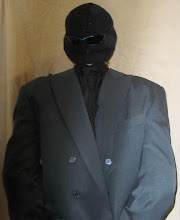A recent discussion I've had got me wondering about this. We in Australia are privileged to not have to worry about this in general - out of all the armed conflicts that our military are involved in, we have only had about ten fatalities in the last decade, and most of what we do is in peacekeeping and training rather than actual front line combat; we aren't directly threatened by any imminent fights on our soil; we are allied to many nations that are strong militarily and will protect us even if just to keep trade routes open - by and large, we're fairly safe here from open warfare. And yet, it is something that regularly finds it's way into our news bulletins and papers. It intrudes on our nation's consciousness. Probably our biggest national holiday is the 25 of April, ANZAC day, where we remember one of the most devastating armed conflicts in recent history and the Australians who were there. Out of the top 40 highest grossing movies of all time, 11 of them feature open warfare of some kind, whether it be massive galactic battles or fantasy style sword and shields with cavalry charges. It can't be because war is a good thing; Jimmy Carter said it this way, "No matter how necessary, war is always an evil, never a good". By my reckoning, the only real reason that humanity would spend so much time, money and effort on this base waste of life, is because either we enjoy it, or it is somehow part of the human psyche. I can't think of anyone who enjoys war (except for those so devoid of humanity that we call them sociopaths or psychopaths) so we are left with only doing it because it is part of our nature.
In a small way, you see wars all of the time in nature; predator kills prey being the obvious example, but nothing compared with the violence that humans visit upon one another for nothing more than an idea or an order. The most ruthless murderers are those who kill for their ideas and this is never seen more than in war; look at WWII, the most pitiless murderers were those who killed for the idea of the so-called master race, the Aryans. Now look at the other side of the coin, at the Allies; they often killed for no more than an order - the most lasting peace before armistice was the unofficial Christmas Day truce, where hundreds of thousands of troops on both sides of the war lay down arms for up to a week for no more reason than it was Christmas and they didn't want to fight. In many places they disregarded orders to keep fighting and talked with people who only hours previously had been shooting at them. This then would seem to mean that war is not part of the mind of a normal person. Why then do we persist? Is it just a part of our collective character or is it hardwired into our heads genetically?
We all know of the horrors of war, so I won't go into them. We all know that normal people don't enjoy war, so I won't discuss those who do, or why we don't. I'm going to finish with the words of Adam Roberts, someone not known for his knowledge of war, but for his satirical humour. he says that the end of war isn't peace, "For what is war but struggle? And the opposite of struggle is not peace, but death." His point is that struggle is an integral part of life, regardless of what we do with ourselves.
In a small way, you see wars all of the time in nature; predator kills prey being the obvious example, but nothing compared with the violence that humans visit upon one another for nothing more than an idea or an order. The most ruthless murderers are those who kill for their ideas and this is never seen more than in war; look at WWII, the most pitiless murderers were those who killed for the idea of the so-called master race, the Aryans. Now look at the other side of the coin, at the Allies; they often killed for no more than an order - the most lasting peace before armistice was the unofficial Christmas Day truce, where hundreds of thousands of troops on both sides of the war lay down arms for up to a week for no more reason than it was Christmas and they didn't want to fight. In many places they disregarded orders to keep fighting and talked with people who only hours previously had been shooting at them. This then would seem to mean that war is not part of the mind of a normal person. Why then do we persist? Is it just a part of our collective character or is it hardwired into our heads genetically?
We all know of the horrors of war, so I won't go into them. We all know that normal people don't enjoy war, so I won't discuss those who do, or why we don't. I'm going to finish with the words of Adam Roberts, someone not known for his knowledge of war, but for his satirical humour. he says that the end of war isn't peace, "For what is war but struggle? And the opposite of struggle is not peace, but death." His point is that struggle is an integral part of life, regardless of what we do with ourselves.

No comments:
Post a Comment